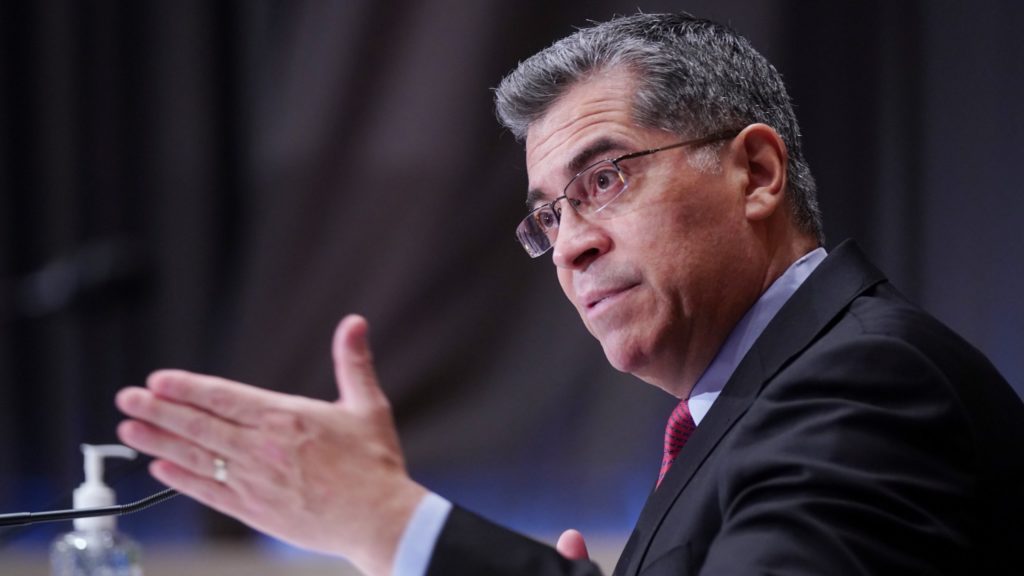While recent healthcare related non-discrimination regulations implemented by the Biden administration don’t include an abortion mandate as the U.S. bishops feared, they’ve taken issue with how the regulations advance an “ideological view of sex.”
The Department of Health and Human Services on April 26 published a final rule to nondiscrimination provisions of the Affordable Care Act, known as Section 1557, adding sexual orientation and gender identity to the definition of discrimination on the basis of sex.
The U.S. bishops have long anticipated the change, as they first submitted comments when the changes were proposed by the Department of Health and Human Services back in 2022. At the time, however, the U.S. bishops lamented not only the potential changes to the definition of sex, but that an abortion mandate would eventually be a part of the final rule.
“We appreciate that the final rule does not attempt to impose a mandate with regard to abortion,” Bishop Kevin Rhoades of Fort Wayne-South Bend, Chair of the United States Conference of Catholic Bishops Committee for Religious Liberty said in an April 30 statement. “These regulations, however, advance an ideological view of sex that, as the Holy See has noted, denies the most beautiful and most powerful difference that exists between living beings: sexual difference.”
“I pray that health care workers will embrace the truth about the human person, a truth reflected in Catholic teaching, and that HHS will not substitute its judgment for their own,” Rhoades added.
Section 1557 of the Affordable Care Act prohibits discrimination on the basis of race, color, national origin, sex, age, or disability in specified programs or activities. The new protections were in place under the administration of President Barack Obama, but rolled back under the administration of President Donald Trump.
The final rule applies to health programs or activities that receive HHS funding, health programs or activities administered by HHS, and the health insurance marketplace. Those covered by the rule may include hospitals, health clinics, health insurance insurers, state Medicaid agencies, community health centers, physicians’ practices, and home health care agencies.
The final rule honors federal protections for religious freedom and conscience.
Announcing the final rule, HHS Secretary Xavier Becerra called the changes a giant step forward.
“Today’s rule is a giant step forward for this country toward a more equitable and inclusive health care system, and means that Americans across the country now have a clear way to act on their rights against discrimination when they go to the doctor, talk with their health plan, or engage with health programs run by HHS,” Becerra said in an April 26 statement.
Melanie Fontes, the director of the HHS Office for Civil Rights that specifically issued the rule, said in an April 26 statement that the rule “exemplifies the Biden-Harris Administration’s ongoing commitment to health equity and patient rights.”
Responding to the new final rule, the Catholic Health Association, which includes more than 2,200 Catholic hospitals, nursing homes, long-term care facilities, and related organizations, said in an April 30 statement that its strongly supports non-discrimination in health care, noting that its members provide quality care for all people regardless of race, color, national origin, sex, age, disability, sexual orientation, gender identity or any other category or status.
“At the same time, as Catholic health care providers there are certain procedures that may conflict with our sincerely held religious beliefs. The women and men of Catholic healthcare treat all patients with the compassion and dignity they deserve,” the association said. “We look forward to fully reviewing the final rule to understand its impact on patients and providers.”
Rhoades said the faith’s core beliefs about human dignity are at the core of the USCCB’s stance.
“The human right to health care flows from the sanctity of human life and the dignity that belongs to all human persons, who are made in the image of God,” Rhoades said. “The same core beliefs about human dignity and the wisdom of God’s design that motivate Catholics to care for the sick also shape our convictions about care for preborn children and the immutable nature of the human person.”
“These commitments are inseparable,” Rhoades said.

